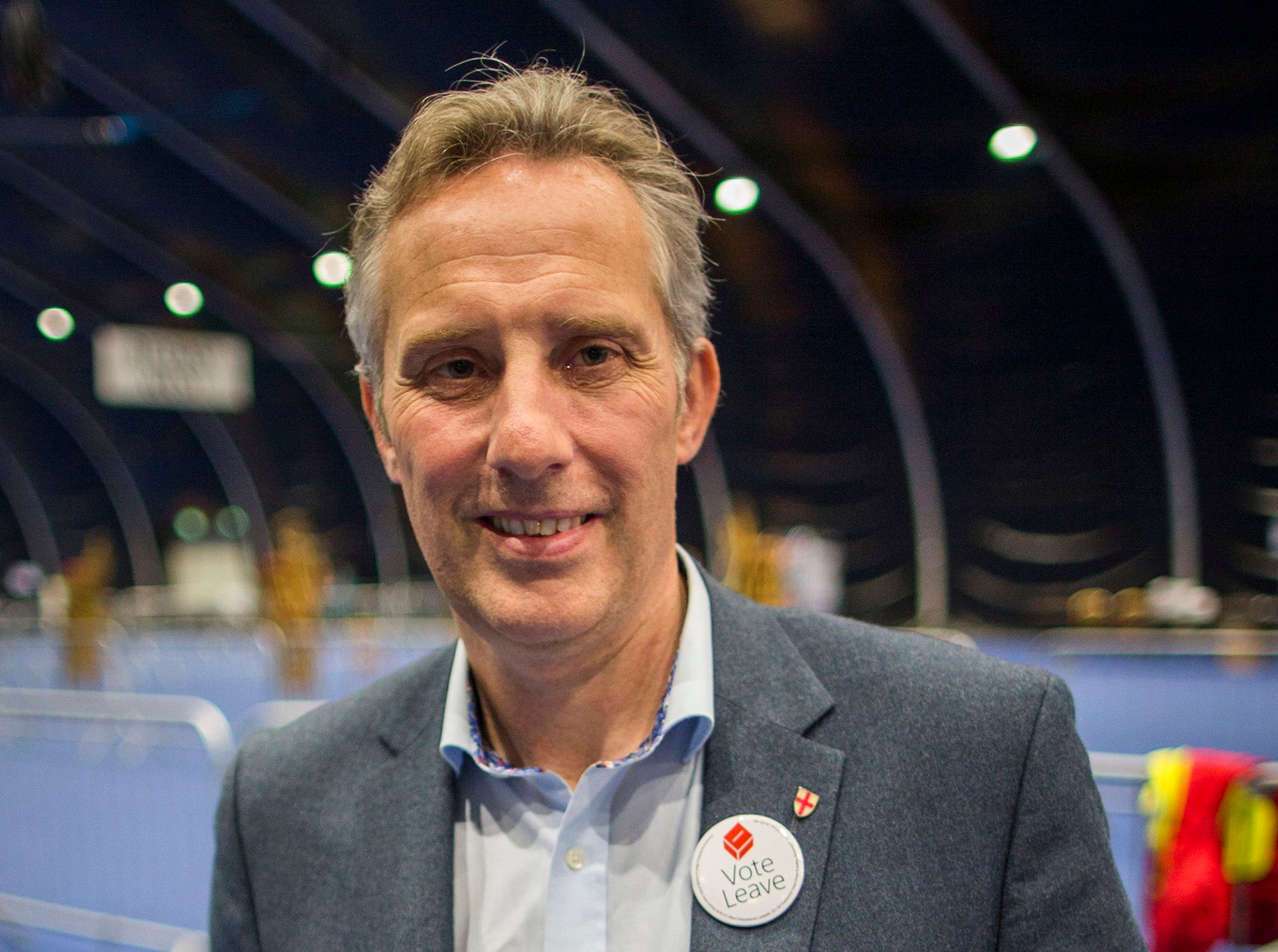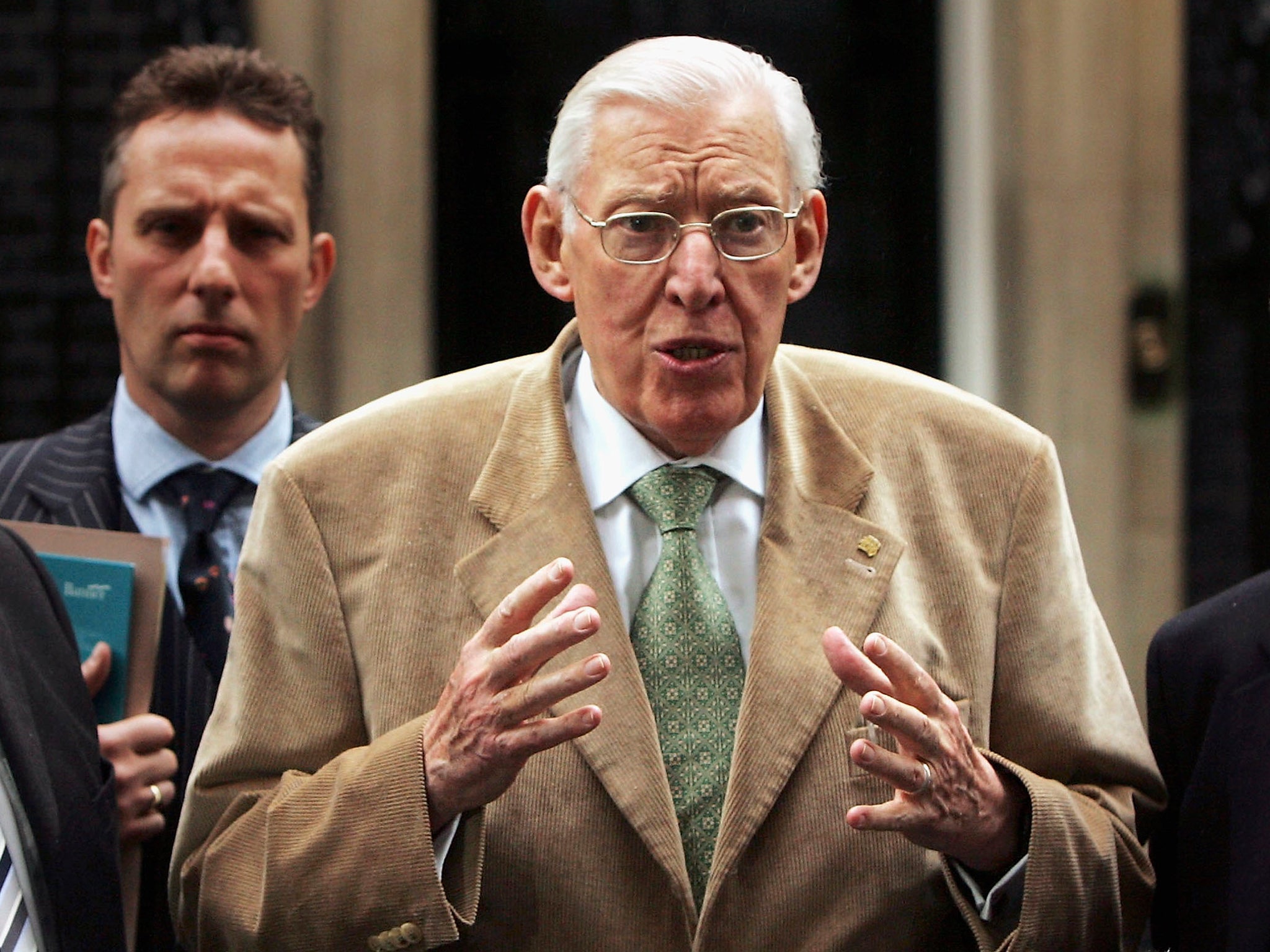Ian Paisley Jnr surviving his recall petition shows how hopeless Northern Ireland politics has become
This result is not a vote of confidence in a shockingly poor MP – it is an indication of how much Northern Irish voters have turned their back on local politics

Your support helps us to tell the story
From reproductive rights to climate change to Big Tech, The Independent is on the ground when the story is developing. Whether it's investigating the financials of Elon Musk's pro-Trump PAC or producing our latest documentary, 'The A Word', which shines a light on the American women fighting for reproductive rights, we know how important it is to parse out the facts from the messaging.
At such a critical moment in US history, we need reporters on the ground. Your donation allows us to keep sending journalists to speak to both sides of the story.
The Independent is trusted by Americans across the entire political spectrum. And unlike many other quality news outlets, we choose not to lock Americans out of our reporting and analysis with paywalls. We believe quality journalism should be available to everyone, paid for by those who can afford it.
Your support makes all the difference.As I settled down after a long day at work, to sketch out this piece in anticipation of the historic result of the recall petition against Ian Paisley Jnr – MP for North Antrim and son of the famous Rev Ian Paisley, founder of the DUP – Sam Cooke crackled into my headphones. Unprompted, he began to croon that a change is going to come.
Drowning in pessimism, I was certain that he was wrong.
Paisley was suspended from the House of Commons for 30 days in June for accepting – then not disclosing – luxury holidays to Sri Lanka worth an estimated £100,000, followed by lobbying the PM to not support a UN investigation into Sri Lankan state atrocities. This was not the first time he had been accused of misconduct, and the suspension opened a recall procedure in his constituency, whereby if 10 per cent of the electorate signed the petition, a by-election would be triggered.
In North Antrim, that meant 7,543 signatures were needed. In the end, the petition fell short by a mere 444 votes.
In Paisley's last election win, 20,000 voters cast ballots for non-DUP parties. In that election, there were 49 voting booths to do so across North Antrim. For the recall petition, the electoral commission only opened three booths across the whole constituency of just under 76,000 voters.
On top of this, at the main booth in a local leisure centre, there was no anonymity. Unlike with elections, attending a booth for a recall petition indicates in itself your voting intention. Despite this, the positioning of the booth made it extremely public who was voting, so much so the local Sinn Fein representative demanded it be changed. The electoral commission moved it, to an area of the centre which was completely impossible to find – you had to go through a myriad of back staircases and even a fire door. It was so poor it then had to be moved back.
Some wannabe voters were turned away at the booth, as they arrived at the wrong one of the three, due to the complicated nature of the process.
In anticipation of these factors, I tried my damnedest to bring together all the local representatives of the non-DUP parties to undersign a letter, encouraging their support for the petition. The UUP, Alliance and the TUV all dismissed the idea, saying they were confident the recall petition would pass. The only party that seemed to actively campaign was Sinn Fein.
The nonchalant nature of the opposition politicians highlights again the complete disconnect between politics and populous in Northern Ireland – they were so confident that the local community knew the ins and outs of Paisley's scandal. They shouldn't feel anger at this result but a profound sense of embarrassment that they've allowed completely unacceptable behaviour to avoid further punishment by this travesty of a process.
Most galling for me is the wide smirk that will be laced across the face of an MP found to have brought parliament into disrepute by historical proportions. It is completely typical of the man that he has immediately sought to boast "90.6 per cent of the electorate have accepted my apology". This flagrant misreading of the result rides roughshod over the reality of how shockingly this whole thing has been run and how contemptible his record as my local representative is.
Not only is Paisley banned from parliament for another two months, last week further damning revelations hit the press about one of his fundraisers – now it is clear two councils sympathetic to the DUP each paid ratepayers' money for a table at his fundraising event. That's £3,000 of tax payers' money into his re-election war chest. Both the audit office and electoral commission are investigating.
This result is not a vote of confidence in a shockingly poor MP – it is an indication of how much Northern Irish voters have turned their back on local politics, and how drastically the electoral commission failed to facilitate those wanting to sign the petition.
So at the end of this chapter, Paisley Jnr remains – as do the empty shop fronts that litter my town, the redundancy notices that are still sliding through some factory workers' doors and the uncertainty for the businesses that rely upon EU access and workers to run.
And unfortunately, this isn’t all the electorate are having to deal with.

The Renewable Heat Incentive (RHI) inquiry continues to shed more light on the inner workings of the DUP and Stormont in general. Alongside Arlene Foster not reading legislation before she brings it to the assembly, or anyone reading a £100,000 report detailing the RHI scheme's anticipated failings, it was revealed that Sinn Fein and the DUP required civil servants to communicate with them via post-it note, so it couldn't be caught by Freedom of Information requests.
On top of this is a ridiculous story, also detailed in evidence to the RHI Inquiry, of how the DUP enterprise minister allegedly got kicked out of a New York bar on a trade trip for being so drunk he fell asleep, and was subsequently said to be too hungover to properly engage in the meeting that they flew over for. It's funny until you realise my local factory closed down under his watch after he never responded to a letter detailing Union fears it could close down and how the government could take steps to fix it. The minister never replied, and 1,000 jobs were lost.
Then there's Brexit.
Northern Irish people remain a passive, mute furniture in this debate. The difficulty of Brexit for us is that both the UK and the EU positions will change our constitutional position.
The UK chose red lines that necessitate a customs border but refuse to accept that it's the inevitable consequence of their choices. The EU (and Ireland) claim they're fighting for the interests of Northern Ireland, to prevent a hard Irish border when in fact it's more nuanced than that – they want no border for the Republic of Ireland, but the EU position creates a border for Northern Ireland, slashing across the UK East-West, rather than across Ireland North-South.
It seems here nothing changes but the seasons: North Antrim remains within the DUP’s careless, damaging grasp, devolution has not returned but politicians continue to get their exorbitant pay checks and there is no certainty on how Brexit will affect us.
We want to believe in the soaring hope of Sam Cooke, but right now, it's never been so hard.
Join our commenting forum
Join thought-provoking conversations, follow other Independent readers and see their replies
Comments